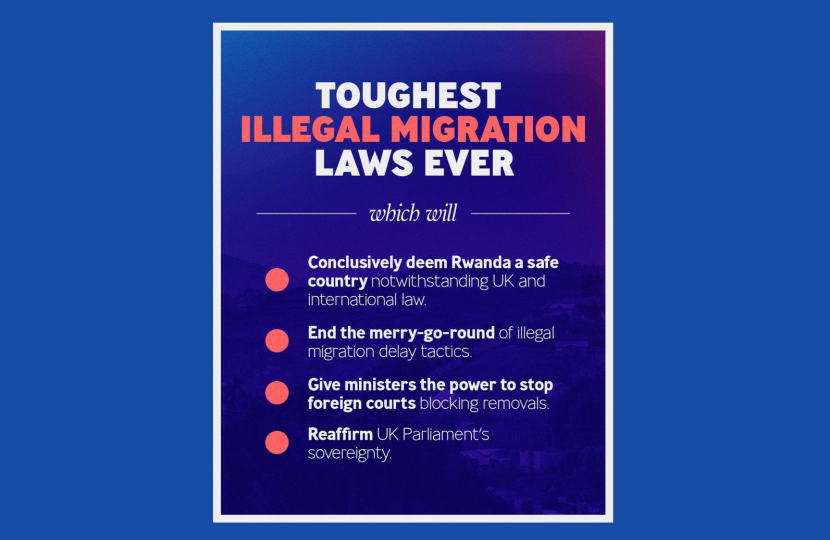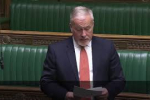
On Tuesday, the government's emergency legislation to stop the boats passed its Second Reading in the House of Commons. The Rwanda Partnership plays a key part in efforts to crackdown on the people smuggling gangs, stop the boats and save lives. While crossings are already down by a third, this legislation goes further to deter illegal migrants.
Speaking after the vote, Richard Fuller MP said:
The Prime Minister got a solid majority for his bill to control illegal immigration and, as the phrase goes, “stop the boats”.
Labour has no policy alternative and while economic issues and public services are central to people’s lives, controlling our borders is a crucial part of the foundation of society. Labour do not, and never will, understand this.
The Prime Minister should not be thwarted by voices of dissent in the Commons or the Lords.
We desperately need to update international agreements on refugees to make them relevant for this century and in the meanwhile Parliament must support efforts to protect our borders and crack down on the evil trade in people smuggling.
The Safety of Rwanda (Asylum and Immigration) Bill is the toughest immigration legislation ever introduced to Parliament. It includes provisions to disapply relevant sections of the Human Rights Act, unambiguously exclude the courts from challenging the fact that Rwanda is safe, and confirm that ministers alone can decide whether to comply with blocking orders from Strasbourg, like the one that grounded the first Rwanda flight in 2022.
The Bill builds on the treaty signed last week by the Home Secretary and Rwandan Foreign Affairs Minister, Dr Vincent Biruta, and makes clear in UK law that Rwanda is a safe country for asylum seekers - answering all of the concerns of the Supreme Court. The legislation and treaty deliver on the Prime Minister’s priority to stop the boats and ensure that people know that if they come to the UK illegally, they will not be able to stay.
Once the bill receives Royal Assent, it will pave the way for the UK to begin next steps in processing people for relocation and starting removal flights to Rwanda. The government intends to fast-track the emergency legislation through the House as soon as possible.
Underpinned by the treaty, the law will prevent UK courts and tribunals from delaying or preventing a person’s removal to Rwanda, on the grounds that they are at risk of being removed to an unsafe country. The bill will also make clear that the UK Parliament is sovereign, and the validity of any act of Parliament is unaffected by international law. Ministers will retain the decision on whether or not to comply with interim measures from the European Court of Human Rights.
It also makes clear the extremely limited exceptions which individuals could challenge removal to Rwanda, and the exceptions which narrow this to the maximum allowed within the law. This includes preventing UK courts and tribunals from granting interim measures, apart from when a person can produce compelling evidence – as a result of their specific personal circumstances – that would lead to them facing a real, imminent and foreseeable risk of serious and irreversible harm if removed to Rwanda. In addition, it disapplies elements of the Human Rights Act 1998, meaning they cannot be factored into court or tribunal decision making.
The principle of relocating people to another country to have their asylum claims processed is lawful – the High Court confirmed this, and it was upheld by the Court of Appeal and the Supreme Court, which did not disturb that finding.
Countries across Europe are following the United Kingdom’s lead in exploring third country models for illegal immigration – including Austria, Germany, Denmark, and Italy in their deal with Albania.
Rwanda currently hosts more than 135,000 people seeking safety and protection and has a track record of providing that protection and supporting people in thriving in their country. The UN Refugee Agency has its own scheme for refugees in Rwanda, which is not delivered through a legally binding treaty.

